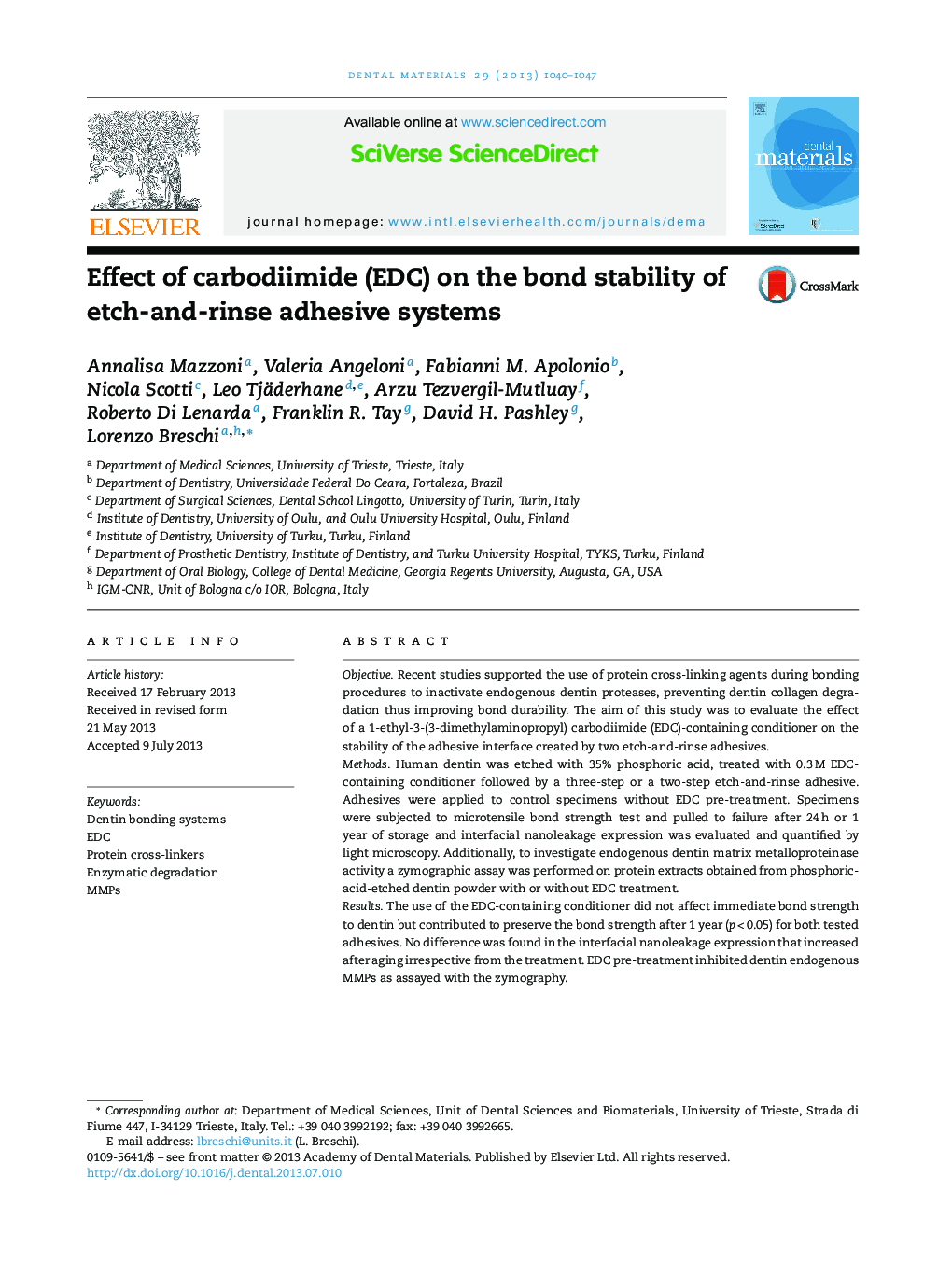| کد مقاله | کد نشریه | سال انتشار | مقاله انگلیسی | نسخه تمام متن |
|---|---|---|---|---|
| 1421081 | 986392 | 2013 | 8 صفحه PDF | دانلود رایگان |

ObjectiveRecent studies supported the use of protein cross-linking agents during bonding procedures to inactivate endogenous dentin proteases, preventing dentin collagen degradation thus improving bond durability. The aim of this study was to evaluate the effect of a 1-ethyl-3-(3-dimethylaminopropyl) carbodiimide (EDC)-containing conditioner on the stability of the adhesive interface created by two etch-and-rinse adhesives.MethodsHuman dentin was etched with 35% phosphoric acid, treated with 0.3 M EDC-containing conditioner followed by a three-step or a two-step etch-and-rinse adhesive. Adhesives were applied to control specimens without EDC pre-treatment. Specimens were subjected to microtensile bond strength test and pulled to failure after 24 h or 1 year of storage and interfacial nanoleakage expression was evaluated and quantified by light microscopy. Additionally, to investigate endogenous dentin matrix metalloproteinase activity a zymographic assay was performed on protein extracts obtained from phosphoric-acid-etched dentin powder with or without EDC treatment.ResultsThe use of the EDC-containing conditioner did not affect immediate bond strength to dentin but contributed to preserve the bond strength after 1 year (p < 0.05) for both tested adhesives. No difference was found in the interfacial nanoleakage expression that increased after aging irrespective from the treatment. EDC pre-treatment inhibited dentin endogenous MMPs as assayed with the zymography.SignificanceIn conclusion, the results of the study provide proof that EDC can produce long-term inactivation of MMPs in acid-etched dentin matrices contributing to bond strength preservation over time. Future studies are needed to support the use of EDC in vivo.
Journal: Dental Materials - Volume 29, Issue 10, October 2013, Pages 1040–1047